How to price Chinese coffee and boutique coffee
The Pulan Coffee College is in unison.
I haven't been in the mood to write anything since the deadline for "falling in love with the cafe" in July. I feel like my brain has been hollowed out. Recently, there has been a heated discussion about the pricing strategy of coffee in the industry, which has given me some ideas.
I am a person who doesn't like clouds and cocoons very much, so it's in my nature to come straight to the point.
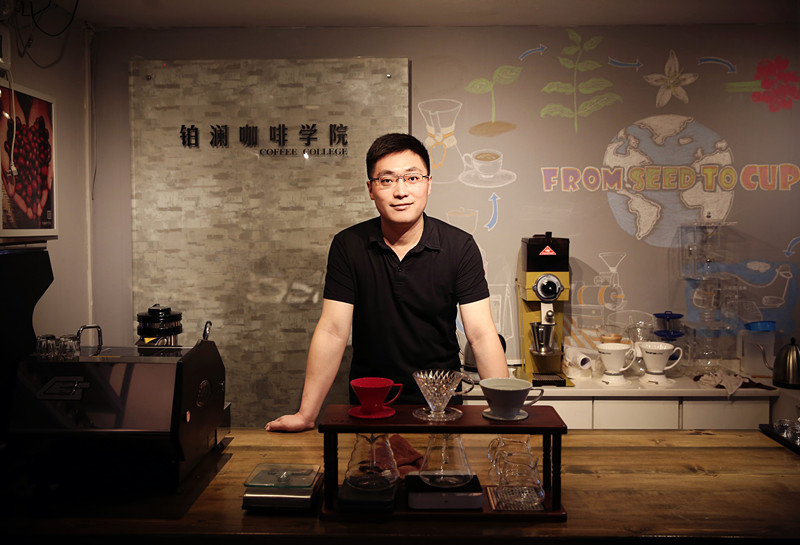
First of all, the pricing of coffee drinks that meet people's basic physiological, convenient and daily consumption should be civilian, and should be integrated into the fast-paced secular life as much as possible. we should try our best to get out of the leisure catering places of slow life, such as cafes, star hotels, medium-and high-grade restaurants, clubhouses and so on. To put it bluntly, let's put it bluntly: don't pretend to be so forced to drink coffee for the pure purpose of refreshing, fatigue, thirst quenching, excitement, etc., take a take-out coffee, add sugar and milk at will, stand by the side of the road and line up in the flow of people entering the subway station, it can also be solved by three or five, this is right!
In the future, automatic coffee machines in office pantries, vending machines in street or supermarket convenience stores, and takeout windows in subway kiosks will be the main battlefields of this kind of coffee consumption. For urban young people in a hurry, holding a cup of take-away coffee will be a more and more common norm, and the daily average and per capita consumption of take-out coffee will become one of the important indicators of urban economic activity.
Today, some colleagues suggest that coffee drinks should be sold at a low price and win by quantity. If it is based on this kind of coffee drink market, then it is clear that the general direction is in the right direction. What is the quality of this kind of coffee drink? Should be at least high-quality commercial grade, there will be a few entry-level boutique coffee to participate in the competition-black coffee should have the basic flavor of one or two typical keywords, have a certain sweet and sour, not astringent taste. Of course, this is just our very idealized vision. When we face the cruel reality, we find that we are too optimistic. You will know the consequences when you go to the street for a cup of 8 yuan or 10 yuan coffee.
We would like to discuss another problem here. In Europe, America and even Japan, coffee consumption has been integrated into people's daily life and become a necessity of life. the huge rigid demand is the premise that this business logic can be effectively constructed-- the quality of coffee is still good, people drink a lot of coffee every day, and the fresh, high-quality coffee supplied to the market is large and continuous. People's daily consumption is large and stable (2015 National Coffee Organization data show that the per capita annual coffee consumption in the United States is 4.4kg, the European Union is 4.9kg, while China is not a member of ICO, it can only be estimated to be 0.083kg, while Starbucks data show that our per capita annual coffee consumption is 0.1kg, I think Starbucks will be more reliable than ICO). What a wonderful business model! And the current situation in our country: the coffee beverage market is far from becoming a climate, people do not regard coffee as a rigid demand, many people have not even taken coffee consumption into their eyes, and the quality of coffee is even more intermingled with the good and the bad. more boutique coffee is still a favorite for consumption in minority circles, not to mention coffee consumers, a large number of coffee practitioners have not received basic coffee training. Even though a considerable proportion of the coffee served in first-and second-tier big city cafes is below the high-quality commercial grade, although instant coffee in five-star hotels is rapidly being replaced by bagged freshly ground coffee powder, American drip filters and French presses are becoming more and more common, but some beautifully packaged coffee powder is still full of defective flavors such as stale, musty and phenolic flavor, and opening bags is disgusting, as can be seen in the selection of raw materials....
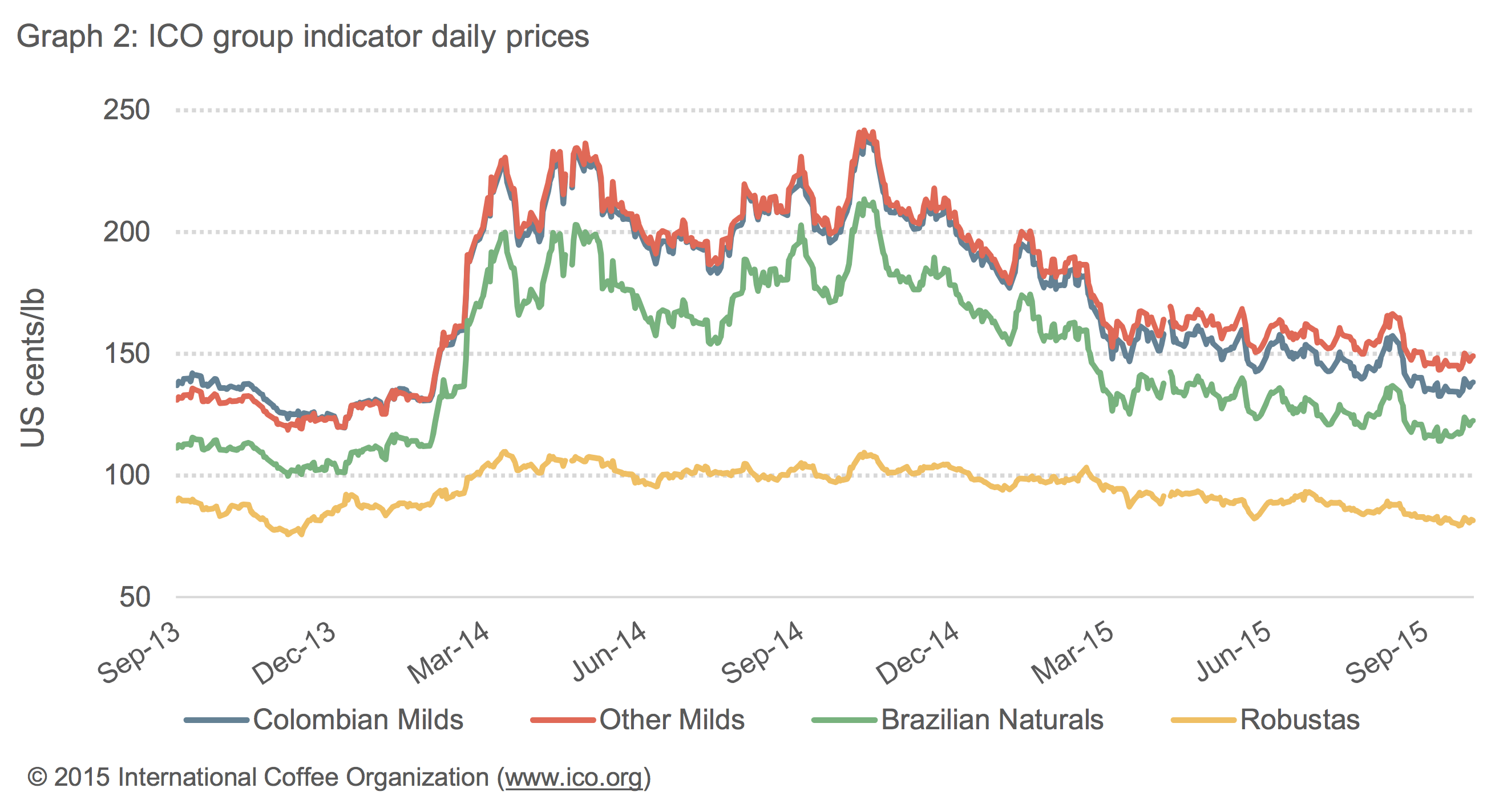

Look at the officials to see, in this naked reality, advocating low-price sales of coffee drinks, can bring positive interactive feedback from the market? Can it bring about a rapid increase in consumption? Can conscience control be achieved? Can we make the main battlefield of coffee consumption in China embark on a sunny and smooth road from now on? I think it's close. However, the phenomenon of "bad money chasing good money (Bad money drives out good)" in economics is bound to occur-when a country circulates two currencies with different real values but the legal value remains the same, the good coins with high real value are bound to be melted, collected or exported and withdraw from the field of circulation, while the bad coins with low real value flood the market. The quality of coffee in the coffee market will get worse and worse, cheaper and cheaper, so vicious circle, until we all go to destruction. Don't forget the story of the rise and fall of the first coffee wave in the United States in the 1960s and 1970s. Think of the Martinsen Coffee Company, which complained in the first season of the popular American TV series Mad Men that young people under the age of 25 no longer drink coffee. In Shangguo, which gave birth to "specialties" such as Sudan red, gutter oil, leather shoes and yogurt, the budding coffee market has a shaky foundation. Once a large-scale price war is launched, it will be an absolute tragedy and all practitioners will suffer a devastating blow.
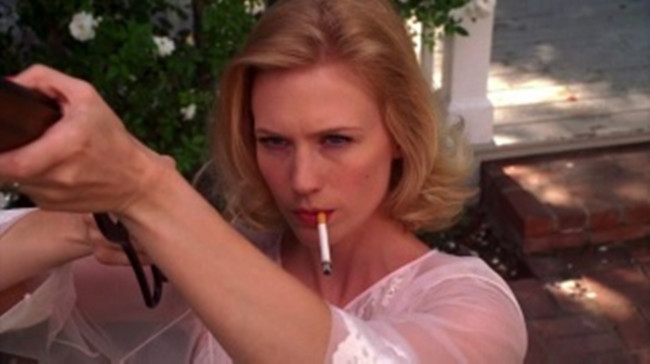
Secondly, China's boutique coffee industry, which coincides with the third coffee wave and joined the global boutique coffee movement, is lucky for China's coffee industry-- in the coffee field, we are also like other fields after the reform and opening up. Picked up a ready-made bargain to achieve great-leap-forward development. Although the scale of China's boutique coffee industry is still small and its market share is simply negligible, the "catfish effect" and demonstration driving effect have become very obvious, which has become one of the core engines for the benign development of China's coffee consumption market. it is also the basic development direction of China's coffee shop industry in the future (the coffee shop I mentioned here generally refers to the coffee leisure catering industry with slow taste of life).
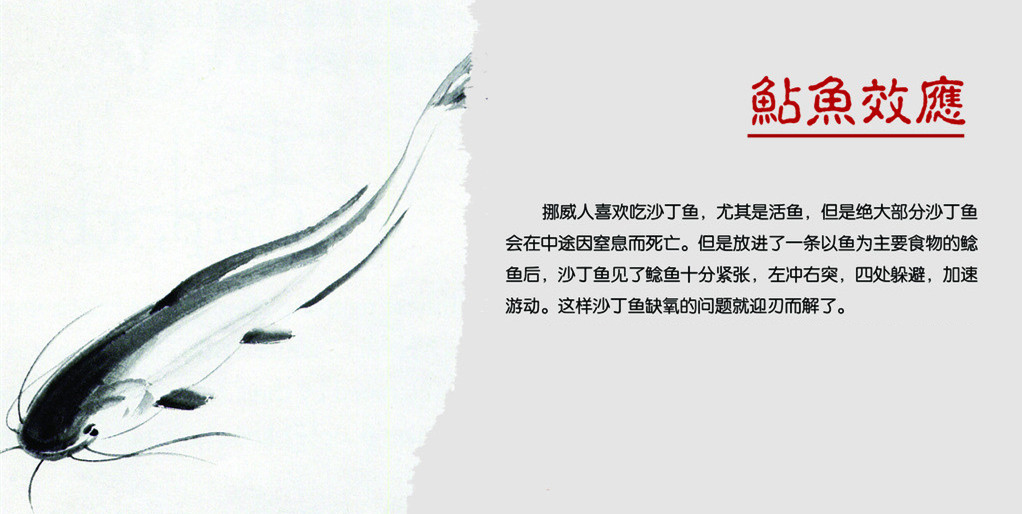
I have always believed that the nature of young people is passionate and aggressive, and the national character of Chinese people is to delve into technical details (Haoshou is poor, but not good at innovation and creation), so the Chinese boutique coffee circle, which is dominated by young people, is obviously a vibrant, thriving, unwilling to lag behind, as an extraordinary field, whether it is WBC or professional coffee competitions such as flower pulling, baking, hand brewing, cup testing and so on. It won't be too far away for us to win the world championship.
Let's bring the subject back. So, how should boutique coffee, especially the boutique coffee in cafes, be priced? The deliberate pricing strategy of spring and snow and high above is obviously not advisable. I am very sad and despise that kind of pricing strategy. A cup of coffee drink is often priced at several hundred yuan, regardless of quality. This behavior itself shows that there is something wrong with the character and intentions of the price setter, and everyone had better stay away from him.
Of course, it is not appropriate to blindly lower the price and hurt people at a cost. Think about it, which one of you has ever seen a family get rich by selling good coffee at a low price? Chinese coffee practitioners who choose this kind of business logic and try to manage boutique coffee by "volume", so as to grow step by step, unless you are Jack Ma and have extraordinary grand strategic intentions, there is an urgent need to suspend the coffee business. hurry back to campus to learn the most basic business knowledge from scratch.
Under the consideration of reasonable profit margin and healthy business logic, a cup of fine coffee eaten in a cafe can not be too cheap. 30-80 yuan is a reasonable pricing range based on the level of consumption in Beijing in 2015. If it is a chain cafe with strong strength, large scale and outstanding cost advantage, most of them only use entry-level boutique coffee, and the pricing should be more aimed at the bottom of this range, and the reasonable price should be between 30 and 40 yuan. If it is an independent boutique coffee shop, the comprehensive operating cost is higher, the use of boutique coffee may be 85 + (according to the SCAA boutique coffee cup score) more, a cup of coffee drink price of 40 to 50 yuan or even 50 or 60 yuan should be considered a reasonable phenomenon. It can be said affectionately that if the price of coffee sold in an independent boutique cafe in Beijing, Guangzhou and Shenzhen is lower than this range, and you have actually felt that the quality of coffee is really good, then it is certain that the shopkeeper is struggling to cultivate a boutique coffee consumption market at the expense of reasonable profits. Regardless of success or failure, like your character and feelings.

Well, seeing here, identifiers and skeptics should start standing in line one after another, and bricks should start flying all over the place. I need to talk about the pricing principles of fine coffee from a macro point of view.
First, friends who have studied economics know that evaluation value is the most important criterion for determining pricing (price), and the social necessary labor time condensed in commodities is the core basis for our pricing. At present, fine coffee accounts for only about 10% of the total coffee production. From the upstream of the industry, this complex process includes meticulous breeding, scientific planting (even selecting soil, altitude, planting shade trees, organic planting, limited yield and quality, etc.), manual batch harvesting, manual selection of coffee and cherries, fine washing or drying, a lot of mechanical or manual sorting, subcontracting, temperature and humidity control preservation, a lot of quality certification, well-protected transportation and even sale. Let's take a look at this upstream process, how hard it is, each step costs a lot of manpower, material and financial resources. Take our Pulan Coffee Institute as an example (this is also done by most boutique coffee institutions). After repeatedly testing the samples, we buy raw coffee beans and store them in an air-conditioned room, followed by a round of sample baking and cup testing. find all the baking-related parameters for the best flavor presentation, and then study the various extraction technical standard parameters required by the bar and how to do various follicular appliances. How to extract from the Italian coffee machine, and then design the packaging for sales, the time and energy spent is self-evident. If a cup of boutique coffee that goes through such a complex process (in fact, a boutique coffee shop requires more necessary costs), it cannot get a reasonable market price and is forced to please the market with a humble low price, this will be extremely disrespectful to all the coffee people in the boutique coffee industry chain, and it is also a very sad scene.
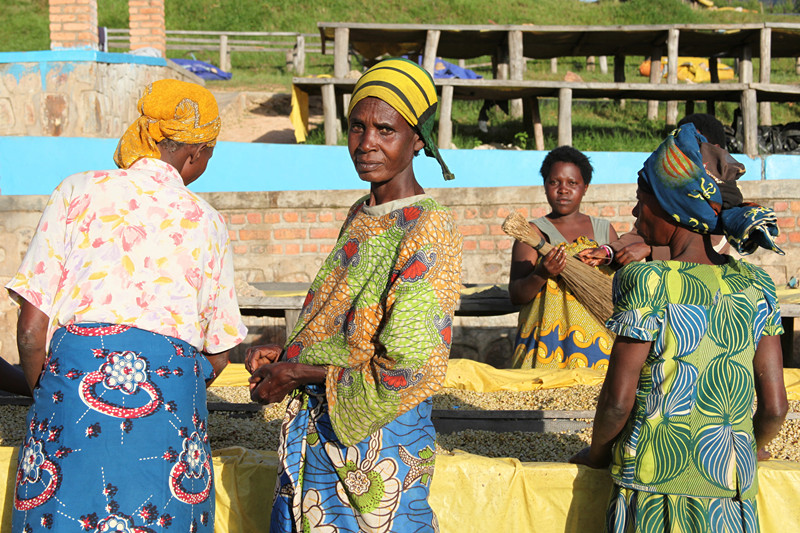
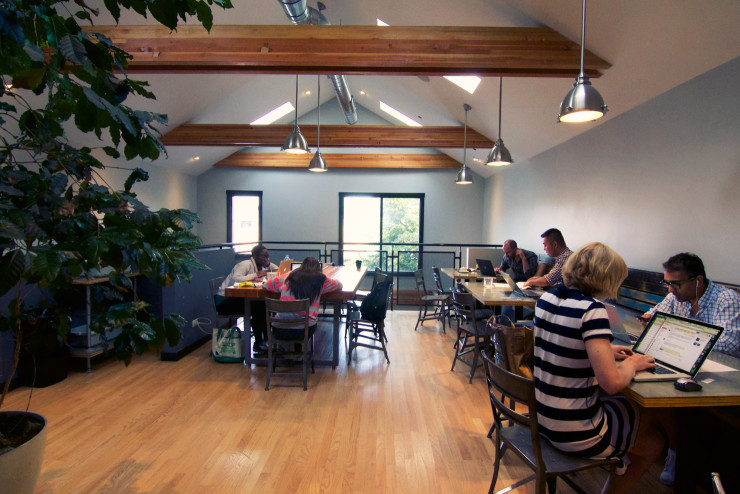
Second, market supply is the second most important factor in determining commodity pricing. As mentioned earlier, boutique coffee only accounts for about 10% of the total coffee production (CQI data), but most of it is intercepted and digested by developed coffee consumption markets such as Europe, the United States and Japan, and the total amount of boutique coffee (mainly refers to raw coffee beans) transferred to China's coffee consumption market is actually not much, and the individuals and institutions with consumer demand for it are extremely large. At least in theory, it is extremely huge-most cafes, high-end Chinese and Western restaurants, four or five-star hotels, all kinds of enterprises that need to be customized for executives or VIP customers, high-end clubhouses, leading boutique coffee consumers. At present, the supply of boutique coffee is obviously unable to meet such a huge consumer demand, this is still a typical seller's market, the supply is far less than the demand, commodity pricing should be self-evident.
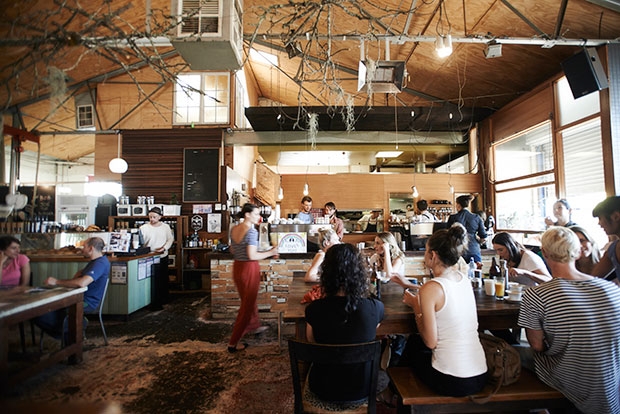
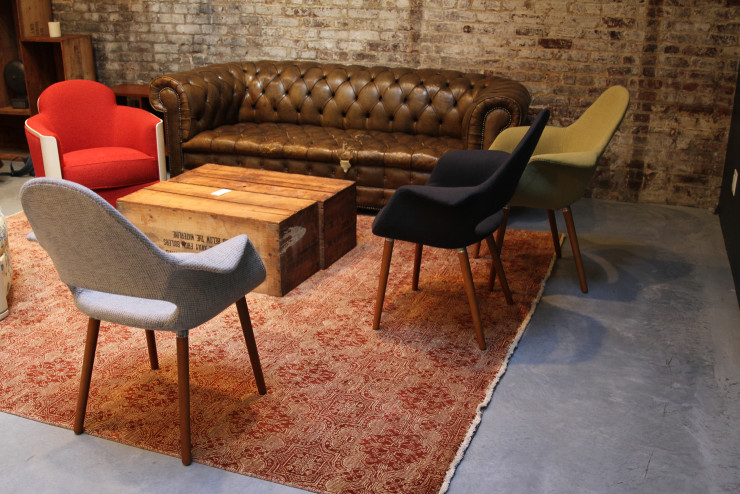
Third, the third major factor determining commodity pricing is the comprehensive human environment of the consumer market and consumer cognition. This is also one of the core ideas of my daily teaching at Pulan Coffee College and writing the book "falling in Love with Cafe". Although the consumption of coffee drinks, as a representative of imported culture, has gradually stepped off the altar and become more and more popular in our country in recent years, a cup of fine coffee and a pleasant coffee shop consumption experience definitely belong to the category of "light extravagance." it is not like steamed bread, rice, noodles and cakes that belong to the rigid needs of daily life, nor is it like a cup of tea that has been drunk for thousands of years and has long been accustomed to the taste of being soaked in the bones. Consuming boutique coffee, especially going to cafes, is also a kind of experiential consumption that adds color to life-I can consume it or not. The reason for consumption is not just a cup of coffee drink, but that kind of comprehensive experience (Experience), what I want is a kind of indescribable freshness.
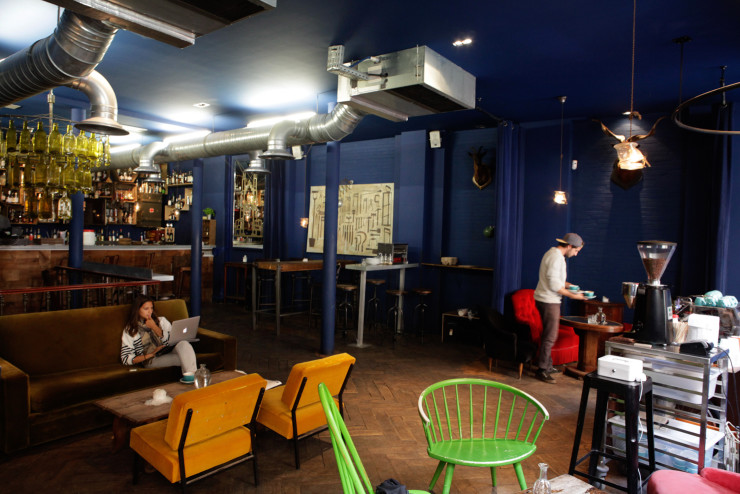
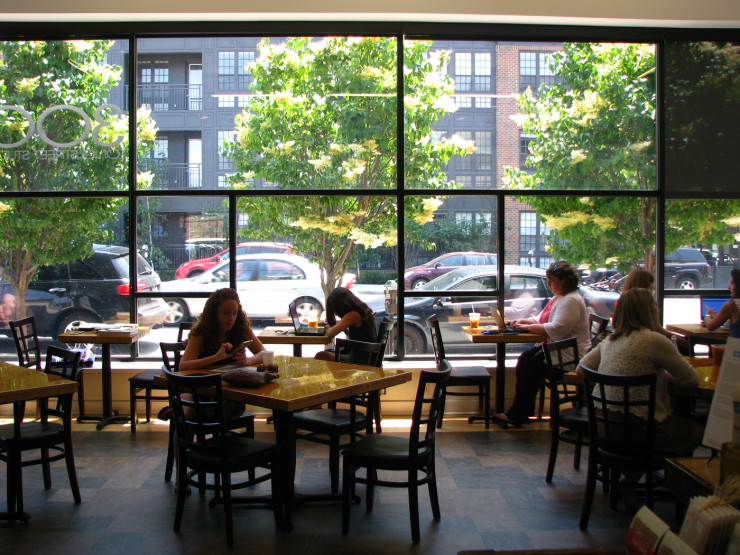
In fact, because of this, the value of cafes in our country is not only to provide a good cup of coffee, but also to design all kinds of value-added experiences other than coffee-- the survival condition of a coffee shop and the amount of turnover. It all depends on how much this comprehensive value-added experience is given, and the quality of coffee only accounts for a certain weight. The quality of Starbucks coffee is not very good, but objectively speaking, it is not very bad, but the brand value-added premium is high. Xi Jinping also held Starbucks coffee cups in Seattle on the news broadcast. Obviously, there will be more value-added consumers' comprehensive experience, and this high position of cultural communication based on the brand is the fundamental reason why Starbucks has swept the country in recent years. This is not, not long ago, Starbucks packaged an immeasurably simple flat white that had been low-key for decades and launched with a mouthful name "Fuluibai". Countless consumers were crazy about it, as if it were a huge invention. As a coffee maker, I feel very shocked, not by this ordinary milk coffee, but by Starbucks' superb skill of adding value to the experience of goods, turning mediocrity into magic, this is the ability of others!
Today, many independent cafes have embarked on the road of boutique coffee, the quality of coffee is getting higher and higher, the cup of coffee is more and more pleasing to the eye, the sense of design in the cafe is getting stronger and stronger, the appearance of baristas is getting better and better, and baristas are becoming more and more good at self-packaging and cool. baristas are more and more involved in a variety of learning, certification examinations and competitive events to improve themselves, and the coffee equipment used in the store is becoming more and more extravagant. These are reasonable actions to increase the comprehensive experience of cafes, which can be clearly perceived and added by consumers, but they are also constantly pushing up costs and must be accounted for in the price of each cup of coffee drink.
Whether it is a good cup of coffee or a good cafe, it is charming and fragile, like a bird resting occasionally on its shoulder, which needs good care and active management, otherwise it will be too late to regret when it is lost. China's coffee market is in the ascendant and has a great future. Coffee people should comply with the trend and operate scientifically. Those rough low-price strategies, grandstanding of all kinds of gimmicks, can not directly reach the hearts of consumers, increase the correct awareness of coffee, but a lot of negative, it is better to rein in a little bit. There is a saying in the poem, "with the spring breeze sneaking into the night, nourishing all things silently". Sometimes rational management and scientific operation seem to be in order, which is the king of career and the smooth road to success.
Of course, the pricing of a cup of coffee will also be adjusted according to competitive strategy, competitive situation, strategic goals, etc., which can not be described in the above few thousand words. The establishment and operation of the coffee shop is even more complex, involving the humanities, aesthetics, psychology, management and many other aspects. Interested people are welcome to pay attention to Platinum Lan, their own works, and the publication of a new book "falling in Love with Cafe" in early December.
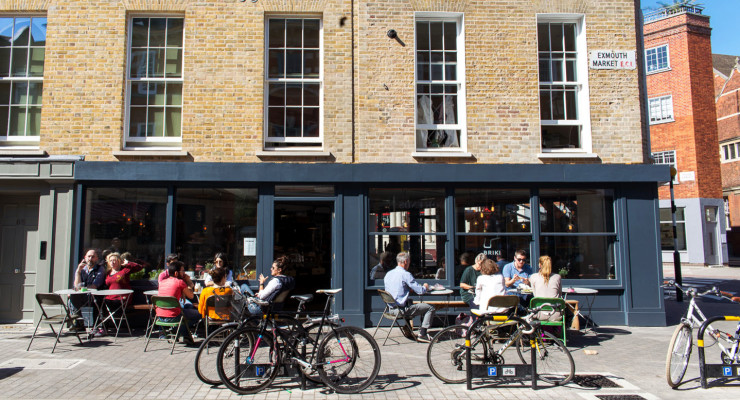
A brief introduction to the author:
Qi Ming, founder of Platlan Coffee College, professional examiner of baristas of National Ministry of Human Society, certified lecturer of American Fine Coffee Association (SCAA), quality appraiser of CQI-Qgrader international coffee, gold cup master of American Fine Coffee Association (SCAA), senior roaster of European Fine Coffee Association (SCAE), famous coffee trainer and writer. He is the author of a series of best-selling monographs such as the Magic Bean Book, Coffee Coffee and falling in Love with the barista. A new book, falling in Love with the Cafe, will be published soon.
Important Notice :
前街咖啡 FrontStreet Coffee has moved to new addredd:
FrontStreet Coffee Address: 315,Donghua East Road,GuangZhou
Tel:020 38364473
- Prev
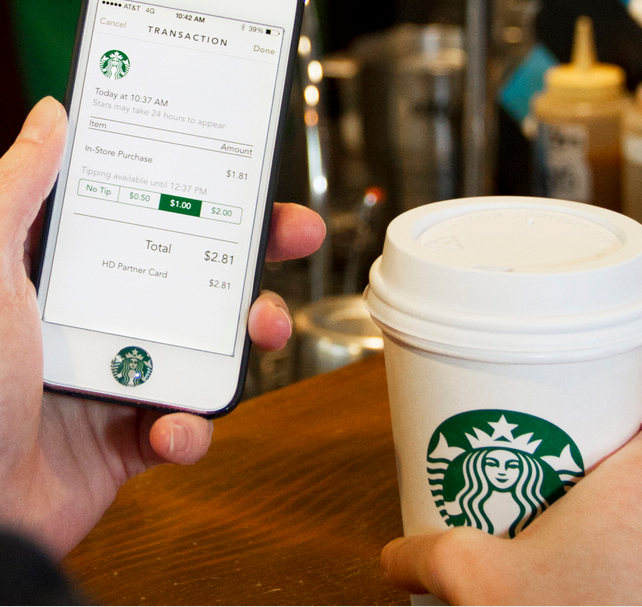
Starbucks 3 poison moves to become the most successful and largest O2O organization
When it comes to technology companies, the first brand everyone thinks of is definitely not Starbucks, because Starbucks is not the first retailer to sell products through the Internet and mobile apps, let alone prevent Starbucks from using technology to make consumers addicted. In the past, coffee was sold on caffeine. Now, if you want to sell coffee well, you have to capture consumers 'technology addiction. Starbucks has become
- Next
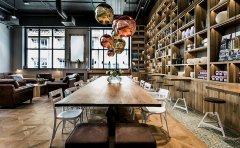
The "3W Cafe" model has become popular: not copying, but innovation.
Changzhou, China within half a year, 3W founding team 2 times by the prime minister's attention, 5 times by CCTV special reports, in the past national mass entrepreneurship and innovation week activities, they unexpectedly once again become the focus. Moreover, due to being favored by local politicians and businessmen across the country, its 3W incubators and coffee shops have been opened in more than a dozen cities across the country. In addition, many cafes imitating 3W are also springing up everywhere.
Related
- Workers collapse! Lucky suspects that it will introduce freshly cut fruits?!
- 1-point subsidy recipients wear thousand-yuan watches?! Local response: For low-income households
- Can lightly roasted coffee beans be used to extract espresso? How finely should you grind high-quality coffee beans to make Italian latte?
- What is the difference between the world's top rose summer coffee and Yejia Shefi? What are the flavor characteristics of Yega Shefi coffee and Panama rose summer?
- The ceremony is full! Starbucks starts to cut the ribbon at a complimentary coffee station?!
- A whole Michelin meal?! Lucky launches the new "Small Butter Apple Crispy Latte"
- Three tips for adjusting espresso on rainy days! Quickly find the right water temperature, powder, and grinding ratio for espresso!
- How much hot water does it take to brew hanging ear coffee? How does it taste best? Can hot water from the water dispenser be used to make ear drip coffee?
- What grade does Jamaica Blue Mountain No. 1 coffee belong to and how to drink it better? What is the highest grade of Blue Mountain coffee for coffee aristocrats?
- What are the flavor characteristics of the world-famous coffee Blue Mountain No. 1 Golden Mantelin? What are the characteristics of deep-roasted bitter coffee?

